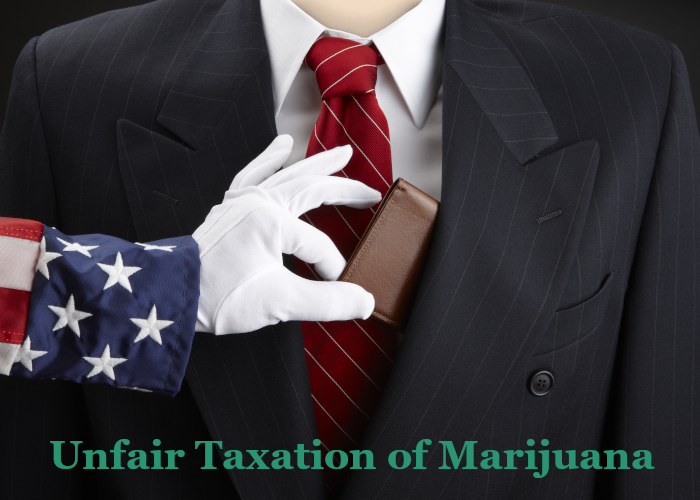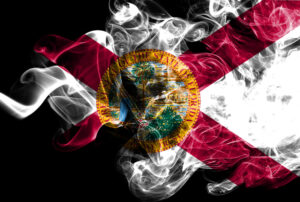

Unfair Taxation of Regulated Marijuana Must End
- The cannabis industry and cannabis consumers are unfairly taxed in general.
- Americans want cannabis made federally legal.
- The Senate has the chance to pass the SAFE Banking act.
- Doing so would allow cannabis businesses to claim their expenses on their taxes and permit banks to do business with them.
- Now some lawmakers are pushing a different bill that adds a 25 percent federal sales tax on top of already high state taxes, putting the SAFE banking act at risk.
There comes a point where people have to stand up and say, enough is enough. And when it comes to taxing cannabis users — both medical and adult recreational — enough, already! With marijuana taxes already far too high, some lawmakers in Washington want to pile on another 25 percent marijuana sales tax.
And here’s why this is a mind-boggling bad idea.
As young as it is, the cannabis industry is already one of the most highly regulated industries on earth on par with financial services, gambling, and healthcare. In some regions, sales tax is collected at the state, county, city, and even district levels.
The problem is that in many places legal marijuana dispensaries cannot compete with black market prices meaning more money goes to criminals and less money goes into government coffers.
On top of that, cannabis companies are unfairly taxed by the IRS, costing states and consumers even more money.
What’s the holdup, Washington?
Why is the federal government so slow on cannabis policy reform? Unbelievably, the current situation goes back nearly 100 years. And our cannabis laws are still far from sorted out.
Are you aware of the reason marijuana was made illegal a century or so ago? The fact is, it really had nothing to do with marijuana. Actually, the hemp industry posed a threat to the powerful lumber industry. And in an attempt to stomp it out, a blitzkrieg of propaganda was unleashed on the American public the likes of which had not been seen before.
The plan was to paint marijuana as a dangerous drug used by colored people, Mexican immigrants, and jazz musicians. In the now-classic (more like comic) movie, “Reefer Madness,” pot smokers were painted as psychotic rapists and murderers.
It was half a century before there was any serious pushback at all from cannabis advocates. But as soon as there was some pushback the federal government invented the War on Drugs.
It certainly has been a battle ever since.
Today, two-thirds of Americans agree that marijuana should not be federally regulated. Rather than owning up to the failures of federal policy, the majority of U.S. legislators — our so-called “representatives” — refuse to give up on the notion of marijuana as the “evil weed.” And in doing so, they have wasted billions upon billions of our tax dollars. Enough is enough.
One federal agency keeping the cannabis industry down and marijuana prices up
While marijuana is now legal in one form or another in more than two-thirds of U.S. states and counting, marijuana is still a Schedule I controlled substance on par with heroin and LSD at the federal level.
The Drug Enforcement Agency and U.S. Justice departments will hold that position until congress tells them otherwise. Thankfully, however, the DEA and DOJ have been softening their stance in states where marijuana is legal.
But there is one particular federal agency that still bedevils the cannabis industry and anyone who consumes cannabis — and in a big way. That’s the Internal Revenue Service.
The IRS figures, well, if we’re going to let the cannabis industry exist, then they’re going to have to pay taxes. On the other hand, since the business they engage in is federally illegal, cannabis operations are not permitted to write off any of the costs of doing business like a normal company.
This arbitrary decision is laid out in an IRS code Section 280E. And it wasn’t even invented for the cannabis industry. The IRS wanted to collect income taxes from a big cocaine trafficker in California who claimed he should then be able to write off his business expenses. Thus 280E was invented.
Today, state-legal cannabis businesses pay federal income taxes on every dime they take in, even if it goes right back out the door to keep the business running. To give you some sense of the magnitude of this problem, the profits of a typical business are generally under ten percent. The other 80 percent is the cost of doing business.
Then there’s the banking issue
The specter of federal government intervention also haunts the banks and credit unions. Because marijuana is still federally illegal, most banks will not do business with cannabis companies for fear of facing racketeering accusations brought by some overzealous fan of “Reefer Madness.”
In fact, banks and credit unions are required to inform federal authorities if they even suspect a customer might be engaged in any type of illegal activity or they could face severe penalties.
Although some regional banks are beginning to lighten up, still well over half of cannabis businesses have no bank accounts.
So, to add insult to injury, those dispensaries and growers that do not have bank accounts have to pay their taxes with massive mountains of cash. And they have to provide security for that cash. Which is another expense they can’t write off
But wait, there’s more!
The federal government is not the only devil tormenting the cannabis industry. In addition to imposing unreasonable regulation, many states also demand fealty in the form of collecting income taxes on marijuana sales.
In some U.S. states, combined state and local sales taxes reach into the 40 percent range. The amount of money now collected from marijuana sales far exceeds the taxes paid on cigarettes and alcohol — both of which cost Americans billions every year in damages.
Tax revenues from cannabis now total more than $2 billion annually. And those taxes are passed along to the public.
As a result, in many cases, the going rate for dispensary marijuana is higher than the street price for black market weed. So consumers have a choice. Pay the high price to be legal and to enjoy safe, organic, lab-tested products, or stick with whatever you can get on the street.
Many medical users have little choice but to remain criminals and to give their money to drug dealers because they can’t afford to buy overpriced, state-sanctioned marijuana.
The fewer marijuana consumers shopping at dispensaries, the less sales taxes can be collected. On top of that, the cost of chasing down illegal marijuana is costing taxpayers billions. Making legal marijuana cheaper would drastically reduce the cost of enforcing drug laws.
Here’s the kicker...
Now, some lawmakers in Washington are backing a proposal to add another 25 percent sales tax on top of that! We can’t let this happen.
Sadly, before this new nonsense, the SAFE Banking Act would have fixed the banking and tax situation. It had the 60-plus votes it needed to pass the Senate. And it has already passed the house three times. Instead of working to push the bill across the finish line, some lawmakers are piling on other pork fat issues that can be tackled in a future bill.
The Cannabis Administration and Opportunity Act being pushed ahead of the SAFE Banking Act in the Senate calls for a brain-numbing 25 percent national sales tax on all marijuana sales. If passed, it would make legal marijuana more expensive than black market marijuana pretty much nationwide and by a big margin.
One problem facing lawmakers is that passing the SAFE Banking Act would drastically cut the tax revenue being sucked out of the cannabis industry by the IRS by allowing cannabis companies to write off their businesses expenses.
On the other hand, what they’re not getting is that legalizing marijuana would not only be the right thing to do for we the people, it would also save the federal government billions in law enforcement costs. If the bill fails, the federal government gets to keep raking in tax revenue but continues to spend billions of dollars on upholding prohibition.
If a 25 percent tax is passed, then a $50 ⅛ ounce of marijuana would cost $62.50 — plus up to 47% state tax bringing the total up to as high as $82.50 for 3.5 grams bringing the total up to $23.50 per gram. That’s more than twice the black market price!
Does this make sense to anyone — outside of Washington, or California?
Organizations such as the Marijuana Policy Project and cannabis industry trade groups are working to lobby some sense into the few senators that are holding things up. We all need to make our voices heard. Contact your U.S. senators — send them a quick email — let them know you want the SAFE Banking Act passed this year, and before they tackle more complex issues related to cannabis.







